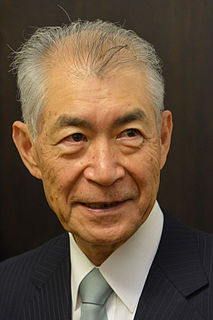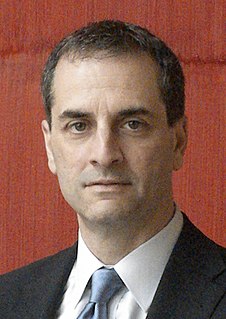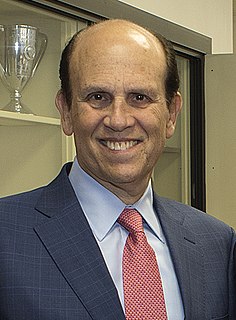A Quote by Tasuku Honjo
The FBRI has been endeavouring to build an ecosystem of healthcare innovation, through engaging in R&D, supporting clinical research, providing business support and strengthening the research and business networks within the KBIC.
Related Quotes
With support from institutions like the United Nations as well as the donor community, governments can strengthen their national technological and scientific capacities by devising policies to link up to research networks, encourage technology transfer, and build indigenous capabilities through education and collaborative projects.
These four policy prescriptions - strengthening educational opportunities, revamping immigration rules for highly skilled workers, increasing federal funding for basic scientific research, and providing incentives for private-sector R&D - should in my view be top priorities as Congress and the Administration consider how to maintain the nation's leadership in science, technology, and innovation.
In the four decades of philanthropy that have paralleled my business career, I've found that the same principles apply whether you're providing access to capital to grow a business, creating a new paradigm for medical research, or pioneering innovative approaches to education: Empower the most talented people in each field and encourage them to pursue their passions.
If you have a strong business idea, then it is comparatively easy now to get capital. It is a positive thing that increasingly more people want to join the startup bandwagon. However, to build a successful business, focus on creating more value through the product, and direct your efforts on solving real issues. If you manage to build a sustainable product, revenue will follow. A lot of startups fail because they concentrate on incremental innovations, increasing user base, and monetisation before strengthening the core of their business.
I see top business schools working to bridge this gap [between academic research and business application] by respecting executive education, by having more mature students who proactively draw from faculty what they know they need, and by having faculty who are willing to leave their ivory towers for the murky world of business reality. Unfortunately, at other times, business professors have little or not interest or savvy about business issues.





































